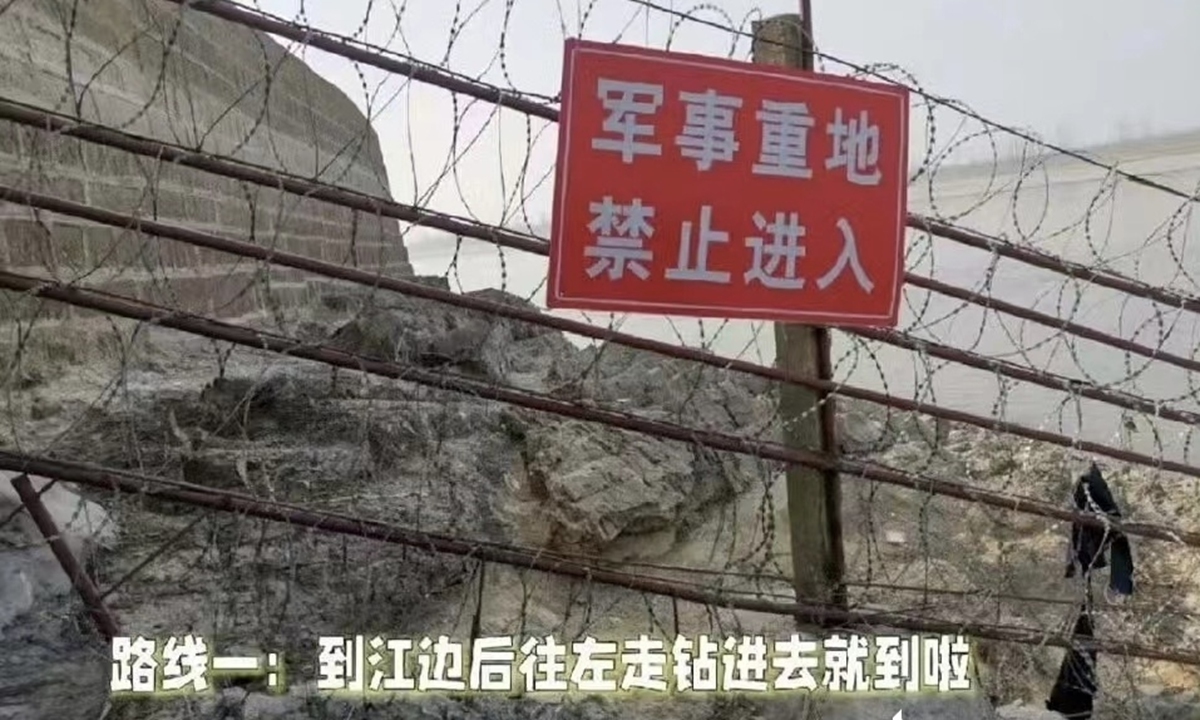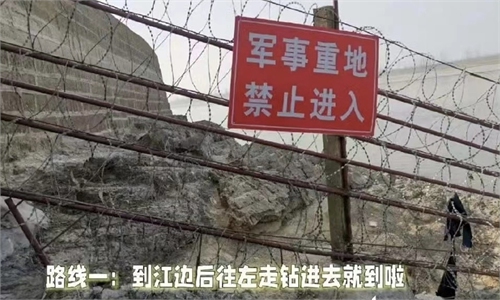China's Ministry of State Security warns self-media operators against endangering national security for seeking attention

A blogger posts photos and travel tips on entering a military restricted zone on China's Instagram-like social platform Xiaohongshu. Photo: snapshot from guancha.cn
China's Ministry of State Security (MSS) published a post on Tuesday, urging self-media operators to caution against blindly following trends that could compromise national security. It highlighted the example of some outdoor enthusiasts who share tips for "niche" photography locations on social media, boldly using "restricted areas" as a gimmick to draw attention, including sharing detailed routes to enter military restricted areas.
In recent years, some individuals previously employed in sensitive sectors such as Party and government bodies, national defense industries, and scientific research institutions have sought to attract online traffic and arouse netizens' curiosity about confidential fields by sharing their work experiences on public platforms, often imbued with a sense of mystery.
To garner attention, some have gone so far as to actively divulge state secrets, still bound by confidentiality obligations from past employers. Such actions, while potentially boosting online popularity, also risk drawing the attention of foreign intelligence agencies, according to the MSS.
The ministry referenced the newly revised law on guarding state secrets, noting that individuals privy to classified information are forbidden from disclosing any state secrets during the declassification period. Once this period concludes, they are expected to adhere to national confidentiality protocols and continue to uphold their duty to maintain the secrecy of known state secrets.
The MSS acknowledged that within legally and regulatorily permissible boundaries, sharing professional knowledge and workplace experiences could positively influence the target audience. However, those with access to state secrets are obligated to rigorously apply confidentiality laws, regulations, and institutional policies in public discourse, maintaining a steadfast commitment to confidential information.
Additionally, the MSS highlighted the issue of netizens, particularly outdoor enthusiasts, who utilize social media to disseminate guides to "niche" check-in spots, exploiting "restricted areas" as a lure for followers.
For instance, a blogger on Xiaohongshu, a platform akin to Instagram in China, published a post titled "What did I see after going through 'the forbidden area' in Central China's Wuhan," featuring photos of a young woman climbing over a fence marked "Military restricted area. Entry prohibited."
This act drew criticism from both military-affiliated media, such as the Junzhengping Studio, and Chinese netizens, who denounced the blatant disregard for national security and called for heightened public awareness regarding national defense.
Under the law on the protection of military installations, Chinese organizations and citizens bear the responsibility to safeguard military facilities, with any act disrupting the order of military restricted zones or jeopardizing the safety of military installations facing strict legal consequences.
The MSS emphasized that military areas and sensitive zones are not attractions for tourists. Misuse of such information by those with malicious intent could severely threaten national security.
Finally, the authority reminded that the internet is not beyond the reach of law, and self-media operators must shoulder the responsibility of upholding national security. They are urged not to compromise national security for the sake of online traffic, nor to venture into illegal or criminal activities.

